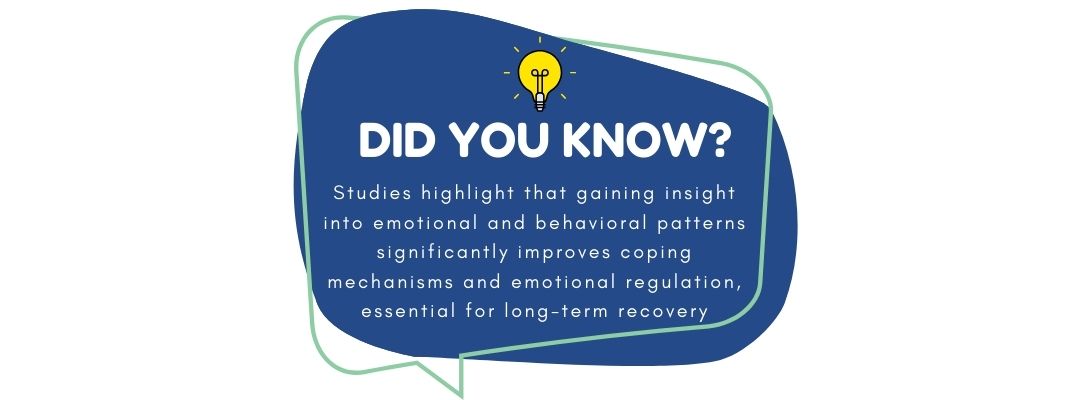Is Psychotherapy an Insight Therapy? Understanding the Concepts and Approaches
Is psychotherapy an insight therapy? Well, psychotherapy is a broad term that encompasses various therapeutic approaches, and insight therapy is one of these methods. Insight therapy focuses on helping individuals understand the underlying thoughts and feelings that drive their behaviors. This form of therapy encourages clients to explore their past experiences and how these experiences influence their present actions.
As people seek help for various mental health issues, they may wonder if psychotherapy can lead to deeper insights about themselves. Insight-oriented therapy aims to create a space where individuals can examine their motivations and emotional challenges in a supportive environment. This process can lead to significant personal growth and improved mental well-being.
Understanding whether psychotherapy qualifies as insight therapy is vital for those considering their treatment options. This article will explore the connections between these two concepts and how they can work together to enhance self-awareness and healing.
Key Takeaways
- Psychotherapy includes many approaches, one of which is insight therapy.
- Insight therapy helps individuals understand their thoughts and behaviors.
- Exploring past experiences can lead to personal growth and healing.
Understanding Psychotherapy
Psychotherapy is a structured form of treatment that focuses on emotional, psychological, and social well-being. It employs various techniques to help individuals gain insight into their feelings, behaviors, and relationships. This section breaks down the definition, goals, therapeutic process, and types of psychotherapy.
Definition and Goals
Psychotherapy, often called talk therapy, aims to alleviate emotional distress and promote mental health. It involves conversations between a therapist and a client, focusing on the client’s thoughts, feelings, and behaviors.
The primary goals include improving emotional regulation, enhancing self-awareness, and fostering coping strategies. It also works to build more meaningful relationships and resolve personal conflicts. The process can lead to a greater understanding of one’s self and the factors influencing behavior.
The Therapeutic Process
The therapeutic process typically begins with an assessment. During this stage, the therapist gathers information about the client’s history and current challenges. The therapist develops a treatment plan tailored to the client’s needs.
Sessions often involve exploring thoughts and emotions. Techniques such as free association or dream interpretation may be used to uncover deeper issues. The relationship between the therapist and client is crucial, as trust and openness facilitate healing and breakthroughs. Regular sessions create a consistent space for exploration and growth.
Types of Psychotherapy
There are several types of psychotherapy, each with unique techniques and focuses. Some of the most common types include:
- Cognitive-Behavioral Therapy (CBT): This approach focuses on changing negative thought patterns. It aims to alter behaviors that contribute to emotional distress.
- Psychodynamic Therapy: This type explores unconscious thoughts and past experiences. It aims to understand how these factors influence present behavior.
- Humanistic Therapy: This approach emphasizes personal growth and self-actualization. The therapist supports the client in exploring their potential.
Each type addresses different client needs and preferences, providing various pathways to mental well-being.

Psychotherapy as Insight Therapy
Psychotherapy often serves to help individuals achieve insight into their thoughts, behaviors, and emotions. This process can lead to meaningful changes in their mental health and overall well-being. The role of insight in therapy is significant, as it empowers clients to understand the roots of their challenges.
Role of Insight in Therapy
Insight refers to a deep understanding of oneself and one’s motivations. In psychotherapy, gaining insight allows clients to recognize patterns in their behavior that may stem from past experiences.
When clients achieve insight, they can connect their current problems with historical events or relationships. This connection is crucial for healing and can lead to better emotional regulation and healthier coping strategies.
Therapists often facilitate this insight by encouraging clients to explore their thoughts and feelings. As clients gain clarity, they can make informed decisions about their lives and relationships.
Methods of Gaining Insight
Various techniques are used in psychotherapy to help clients gain insight. Talk therapy is one of the most common methods, focusing on discussions that delve into feelings and thoughts.
Cognitive-behavioral therapy (CBT) helps clients identify and challenge negative thought patterns. By recognizing these patterns, clients can gain insight into how their thoughts influence their behaviors.
Journaling can also be a valuable tool. Writing about experiences encourages reflection and can lead to personal discoveries. This practice often reveals hidden emotions and thoughts that contribute to one’s mental state.
Challenges and Considerations
While gaining insight is beneficial, it can also be challenging. Some clients may struggle with confronting painful memories or emotions. This discomfort can lead to resistance during therapy sessions.
Therapists must create a safe and supportive environment for clients to explore these feelings. Balancing the pace of insight with emotional readiness is essential.
It is also important to note that insight alone does not guarantee change. Clients need support in implementing new behaviors and coping strategies based on their insights. A comprehensive approach that combines insight with practical tools is often necessary for lasting progress.
Conclusion: Is Psychotherapy an Insight Therapy?
Psychotherapy can indeed function as an insight therapy, helping individuals uncover the underlying causes of their thoughts, behaviors, and emotions. By examining past experiences and patterns, clients often achieve a deeper understanding of themselves, which can lead to transformative changes in their mental health and relationships. This form of therapy highlights the importance of self-awareness as a cornerstone of emotional growth and healing.
For those considering psychotherapy, recognizing its potential to foster insight and personal growth can guide their treatment decisions. Whether through cognitive-behavioral, psychodynamic, or humanistic approaches, psychotherapy offers diverse pathways to better mental well-being.
You’re not alone, and help is always within reach. Contact us today at (774) 619-7750 and take control over your mental health.




